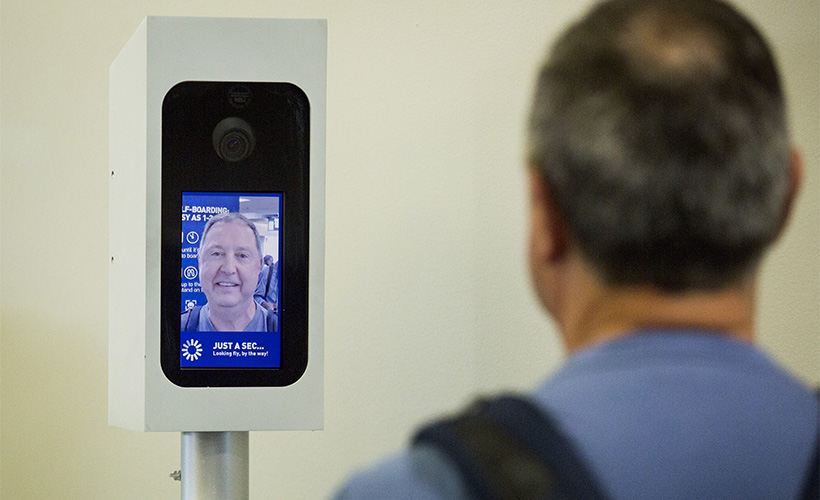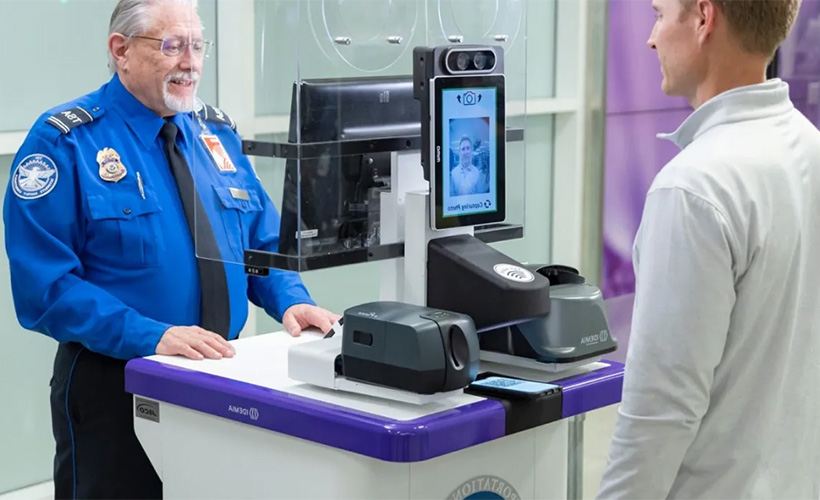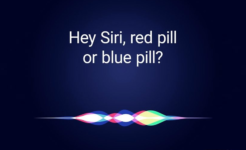
How Facial Recognition Will Change The Way You Travel [Video]
Video uploaded by NBC News on October 26, 2021
Detecting Faces: New Way of Airport Security Tried Out By TSA
Here’s some optimistic news about detecting faces for those who are unhappy with the current balance between security and convenience at the airports – first of all, the American ones. In other words, for those of us who complain loudly about the huge amount of time taken by various checks, controls and other queues boosting activities. Which means virtually all of us: much as we appreciate the need for prevention of terrorists getting on a plane, the lines before getting to the gate do often feel unbearable and the measures – at least, at the time – excessive.
And judging by what is currently happening at the flight passenger controls in Miami, Orlando, Boston and many more locations, this particular ordeal might be soon substantially lightened. Because the biometric scans TSA had started using there have quite a potential to accelerate the whole process. The face recognition method applied within this pilot (talk about some terms becoming especially appropriate in certain contexts) is indeed much quicker than the regular one. Moreover, it’s also noticeably more impartial thanks to the exclusion of the human factor. From the moment a traveller presents a document containing his photograph (be that a passport or other acceptable type of ID) to the card scanner, it’s all fully automated. The camera checks the picture against the passenger’s face, and all that’s left for TSA employees to do is to attest the approval given by the machine. (In case it’s given, of course; otherwise, there are other forces that would come into play). Sounds rather tempting and convincing, if you ask us, even considering some inevitable glitches and wrinkles to work out. In fact, it’s much like what they have in UK’s largest airports for passport control, and far as we know it did speed up the lines quite a bit: not only did these biometric IDs allow to divide the queues in two parts, but the automated controls process the arrivals smoother and easier.

The camera checks the picture against the passenger’s face, and all that’s left for TSA employees to do is to attest the approval given by the machine.
So, considering all the pluses that could come out of this development (both on convenience and security front, considering what could be revealed – and who caught – over the process in question), the prospects seem definitely bright.
Or would seem so, if not for the fact that few things and developments in our life are all that plain and simple. And you have probably already guessed that this case is certainly not the exception. To wit, there are objections against the subject trial already, and they come from quite high levels. As many as five Senate members wrote to TSA, claiming that this way of identity checks potentially infringes on the customers’ rights – as the passengers, according to the letter, are kept in the dark about the facial recognition not being compulsory (which it is not) – and is even fraught with racial discrimination, because such technology is alleged to work less reliably with darker hues of skin. Plus, these five legislators are worried about the lack of encryption in software TSA uses and how the received data are going to be treated, pointing out the dangers of privacy abuse and the like. That is, this step towards better equilibrium between safety and quality of life, apparently, upsets the one between all of that and human rights.
At least, so think senators Markey, Merkley, Booker, Warren and Sanders (yes, the famous Bernie Sanders himself). Which may result in the above-said new level of convenience being not as close as some of us would prefer. Even a lot of us, going by the lack of complaints from those who these senators purport to defend. But then again, what else is new?






Facebook
Twitter
RSS